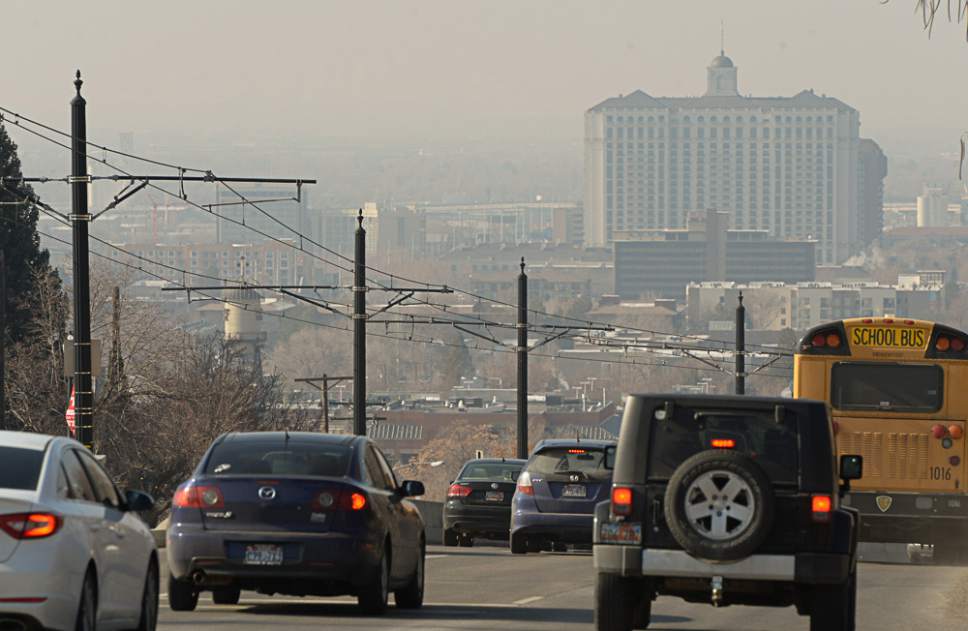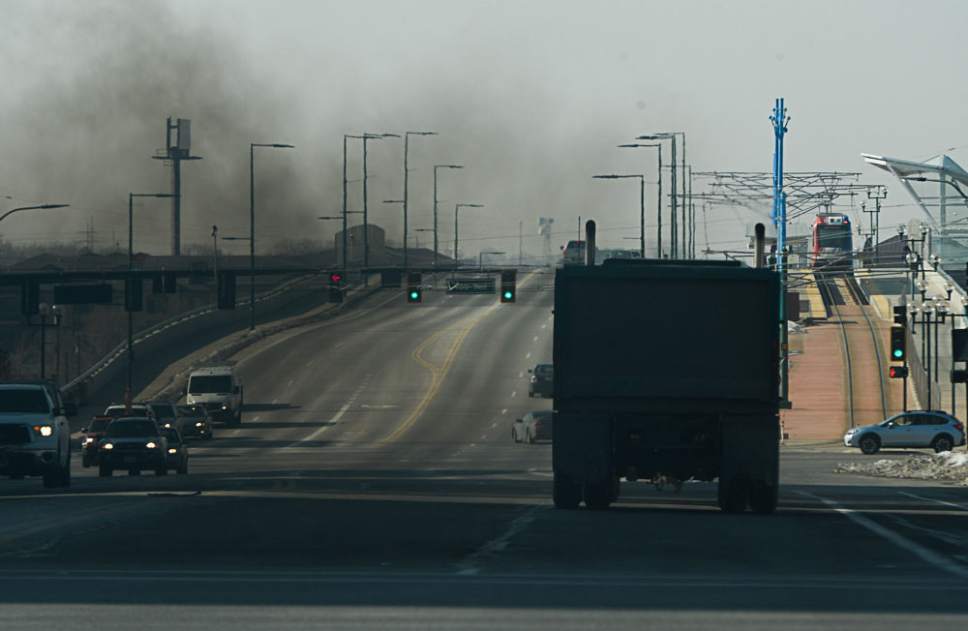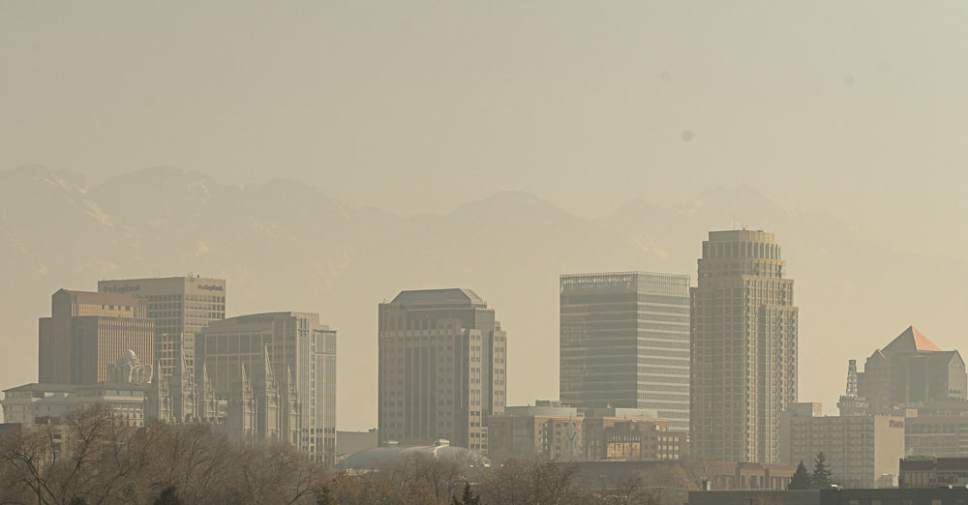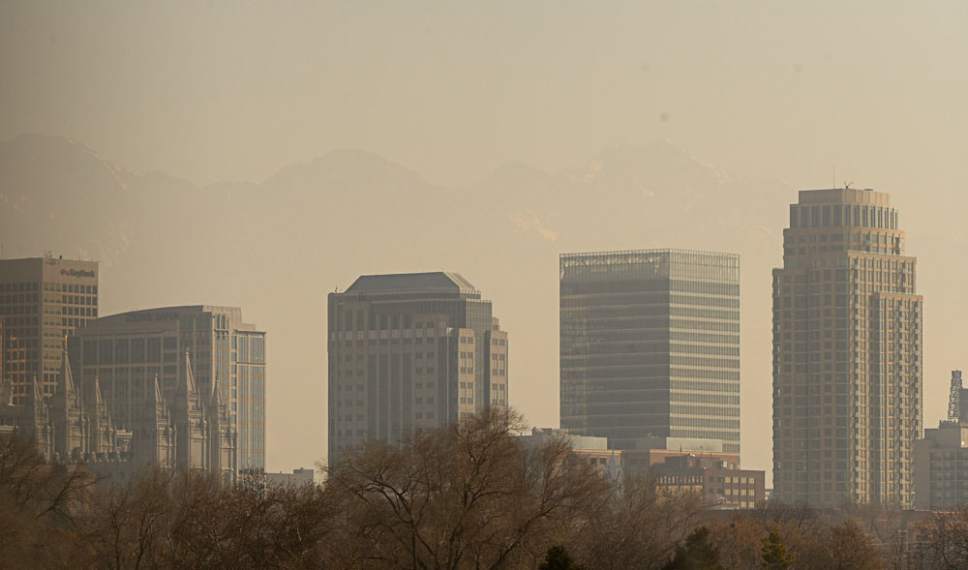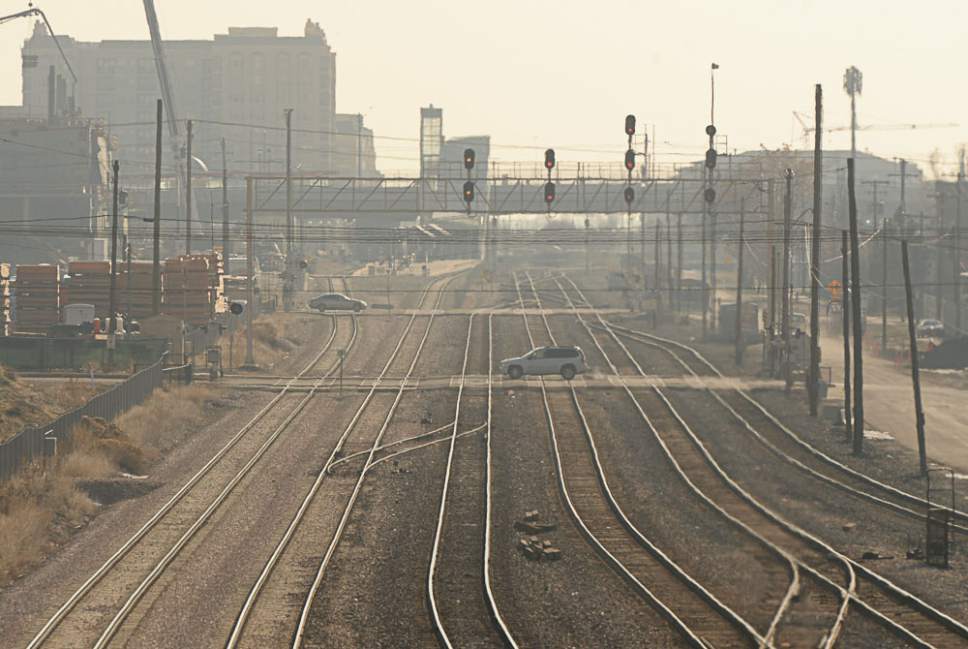This is an archived article that was published on sltrib.com in 2017, and information in the article may be outdated. It is provided only for personal research purposes and may not be reprinted.
State lawmakers have thus far proposed few air-quality measures for their upcoming session — and activists on the issue say that may not be such a bad thing.
As the Jan. 23 opening of the 2017 Utah Legislature loomed, environmental groups acknowledged Tuesday that nothing currently on the table is expected to have a large impact on Utah's air pollution problems.
There are pre-filed bills that deal with emissions from vehicles — a major source of air pollutants. One would provide funding to replace old school buses with newer, cleaner versions; another would renew tax credits that refund part of the cost of purchasing an electric vehicle.
But unlike last year, when legislators saw major clashes over building codes and water heaters, this year's battles may be more symbolic in nature, said Matt Pacenza, executive director of HEAL Utah.
"Last year was a pretty big session," he said.
As an example, Pacenza said he was skeptical of a bill proposed by state Rep. Mike Schultz, R-Salt Lake City, which would require the state Division of Air Quality (DAQ) to allow Utahns to burn wood and other solid fuels for cooking food.
Residents who live on the Wasatch Front are barred from burning solid fuels when the weather forecast calls for "mandatory action" to preserve air quality.
Given that barbecuing is less popular in the winter than in the summer, Pacenza said he didn't believe that permitting grilling during an inversion would have a significant impact on air quality.
But it could set a bad precedent, he said, that might lead to further restrictions on what the DAQ can regulate in the name of bettering air quality.
In a separate interview Tuesday, Robert Paine, chief of pulmonary medicine at the University of Utah Hospital, said he believed the DAQ needs to consider a broad range of regulatory options, including stricter wood-burning rules, to improve air quality and his patients' health.
"I want the DAQ to have an open mind — to cast a wide net," he said.
There are other reasons why air quality won't be as topical this session, Pacenza said. Stormy weather this winter has kept inversions in check, and activists have been less vocal.
Pacenza also said he didn't think there would be much appetite for revisiting major air-quality initiatives so soon after last year's contentions.
Debbie Sigman, executive director of Breathe Utah, said it may be wiser for state lawmakers to take on a lighter load of air quality bills in 2017. Many ideas with potential to clean Utah's airshed are complicated, Sigman said, making it important that they be carefully reviewed.
"These are complex policies that need to be well thought out," she said. "Half-baked is the enemy of all progress."
Building public support is crucial, Sigman said. She pointed to the state's 2015 solid-fuel burning ban, which not only failed to pass but resulted in legislation that bars the DAQ from considering such bans.
So pushing an issue before building consensus can do a lot of damage, she said.
But Pacenza said if Utahns hope for progress on air quality, lawmakers may need to be more willing to "overcome resistance" from the public and special-interest groups.
epenrod@sltrib.com Twitter: @EmaPen


